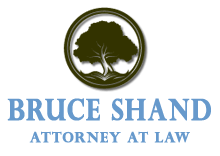Key Issues Of Reverse Mortgages In Utah
Death of the borrower triggers the loan payoff, but the estate and heirs will never owe more than what the home is worth.
Family homes are unique assets. And like many assets, family homes can be as complicated as they are meaningful. Even when heirs inherit a home with no strings attached, issues can arise.
But what about when there are strings that come with inheriting the family home? What if there is still a mortgage or, increasingly common, a reverse mortgage? Notably, when a reverse mortgage is in play there are a few more things an heir needs to know.
Kiplinger recently examined this topic in an article titled “What Heirs Need to Know About Reverse Mortgages.”
The key issues are timing and payoff. At the passing of the last borrower named in the reverse mortgage, that mortgage has to be paid off. Why? Because that is what a reverse mortgage does.
A regular mortgage offers money for the borrower to buy the home while a reverse mortgage offers money for the equity a borrower already has locked up into their home. To keep the house you inherit, then, you have to pay off the lender. Consequently, to earn anything from the sale there must be more equity in the home than debt incurred by the reverse mortgage.
But what if the reverse mortgage balance is greater than the value of the home? Fortunately, reverse mortgages can never force an estate into debt greater than the value of the home itself or allow the lender to collect against the estate beyond the home (they are “nonrecourse” loans).
In short: there is a very definite need to quickly determine what is to be done with the home and if it is financially feasible.
Whether as an heir or a planner, a reverse mortgage is an important financial product to understand and to plan accordingly.
When it comes to settling the estate, handling creditors is a serious responsibility and a reverse mortgage is a serious undertaking. If a reverse mortgage becomes part of the financial plan late-in-life, it also carries with it significant estate consequences that must be navigated very carefully.
As an additional consideration regarding reverse mortgages you need to understand what happens when there is no one living in the home during the life of the mortgagor. Many reverse mortgages have provisions that allow the lender to accelerate the due date of the mortgage if there is no one living in the home for 12 months. So if Mom is a widower and has to move to assisted living for a period of over 12 month’s the lender may require Mom to pay the loan or lose the house prior to Mom’s passing. Careful planning is required before entering into a reverse mortgage.
Reference: Kiplinger (March 2014) “What Heirs Need to Know About Reverse Mortgages”










Leave a Reply
Want to join the discussion?Feel free to contribute!